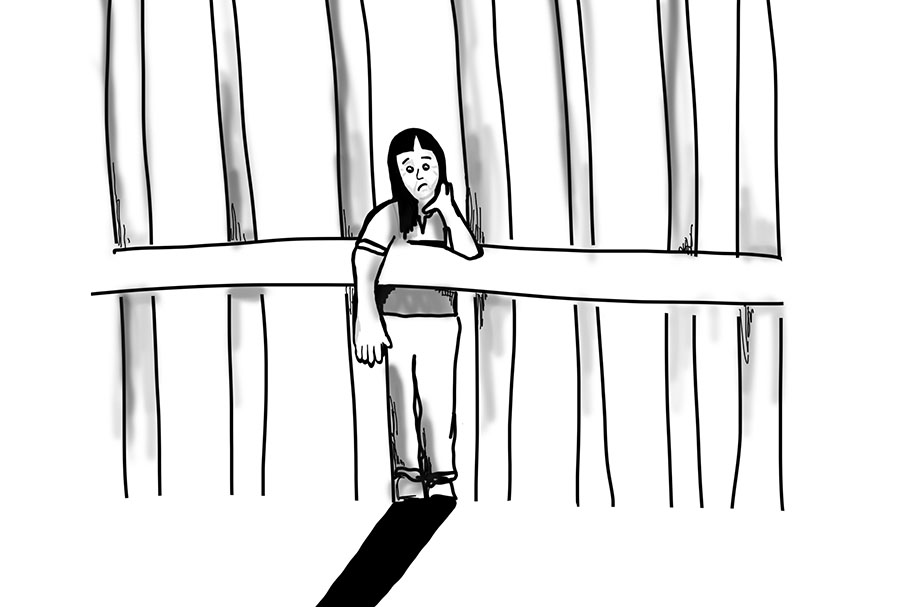America’s Broken Prison System
America’s prisons have terrible conditions and detain people who haven’t committed crimes
February 28, 2020
During the Trump administration, one of the most covered issues has been immigration and specifically Trump’s immigrant detention centers. Greater insight into the horrible conditions of these camps has led to public outcry and growing calls for the system to be changed.
But what is often overlooked is that detention centers are not the only places in America in which people are detained in inhumane conditions. There are over 2.3 million prisoners in the United States who live in terrible conditions—from not being given enough food to being given spoiled food, from overheated cells that can cook people to death to flooded cells. The conditions of our prisons are inhumane and at least as bad as immigrant detention facilities, if not worse, due to some being in these conditions for decades knowing they’ll be there for the rest of their lives, with no hope of parole.
Some may object and think that, because these people are in prison, they presumably have reasons they’re there, so they are less deserving of empathy than those in immigrant detention facilities who just wanted to find a better life in a new country. But this idea fails for four reasons.
The first is that many of those in prison actually haven’t committed any crime, because the vast majority of the United States uses cash bail. Cash bail means that when someone is brought to court for a crime, they have to pay money to not be kept in prison while they wait for their trial. There are 460,000 people in prison currently who have been convicted of no crime and haven’t had their trials, yet they still live in horrible prison conditions, potentially for extended periods of time, depending on how long their trial takes.
The second is that those in immigration detention facilities also technically committed a crime in entering the country “illegally.” Because of this, it is unreasonable to think that those in prisons don’t deserve as much empathy as immigrants, because technically both committed crimes.
So the question is then what the “crimes” committed were. One could say that they think that the crimes people are in prison for are more serious than trying to cross the border, and that’s why it’s more justifiable. But this brings us to the third reason: the crimes most incarcerated individuals are in prison for aren’t serious. There are over 73,000 people in prison for drug offences, many of which are nonviolent. These drug offences hurt no one and are responsible for over 40 percent of inmates. These people should not be in prison and the fact that they remain in abhorrent conditions must be rectified.
But even with all of this, a few might still hold that there are people in prison who are in prison who have committed violent crimes, so at the very least those people should be given less empathy. The fourth reason that prisoners should be given the same empathy as immigrants in detention facilities is that no one, no matter what they’ve done or who they are, should have to live in terrible conditions. Many prisoners live in terrible conditions, are given far too little food, and have no freedom in what they have to do everyday. Regardless of what crime they may have committed, these conditions are reprehensible and unacceptable and need to be fixed.
It wouldn’t take radical action to fix these problems, either. Many countries in Scandinavia are experimenting with far more humane prisons that focus on creating a good environment for inmates for them to be rehabilitated—as opposed to the American system, which is focused on punishing the inmates with issues like cold conditions and cheap food, guards being negligent about prisoner safety, and the overuse of solitary confinement being prevalent.
Whatever the solution, the current conditions of prisons in the United States are abhorrent and action to fix them is necessary, lest we continue to allow inhumane treatment of all in prisons.








































